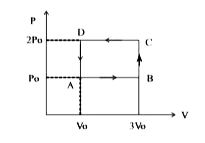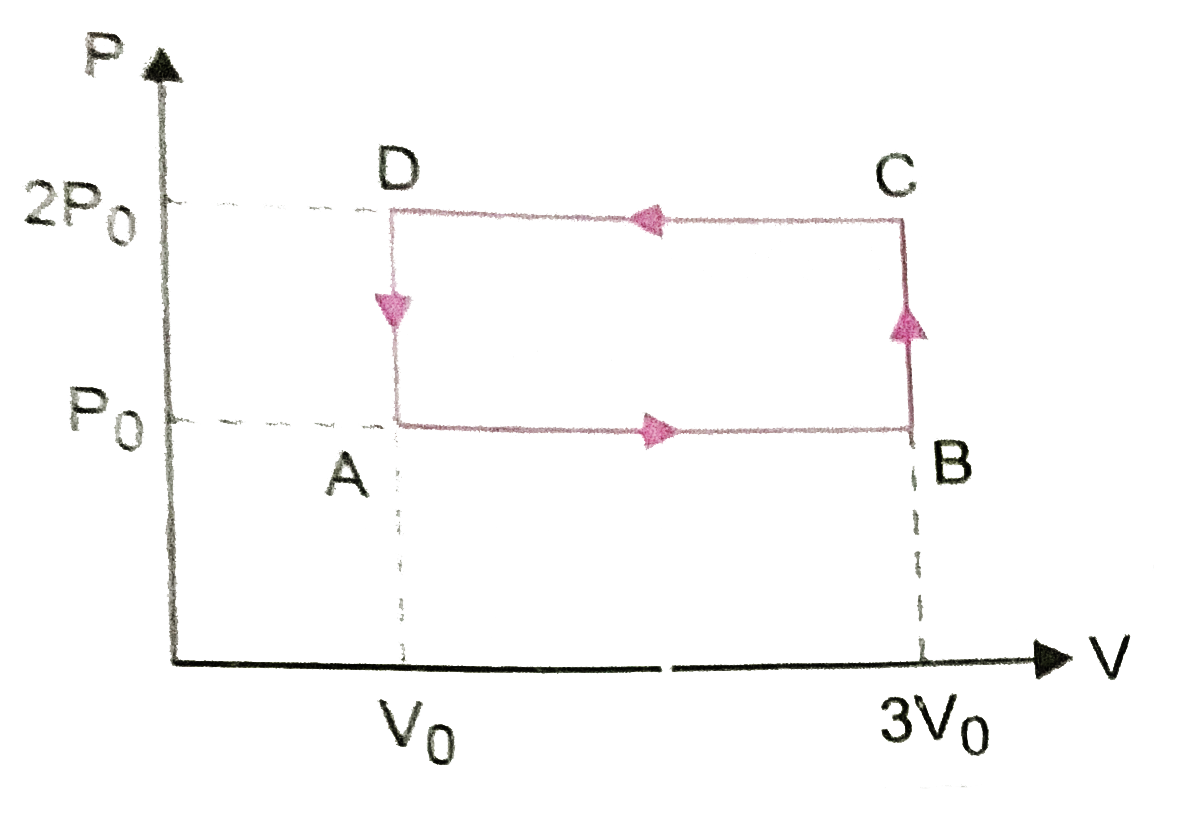One mole of an ideal gas has an interal energy given by U=U0+2PV , where P is the pressure and V the volume of the gas. U0 is a constant. This gas undergoes the quasi− static cyclic process ABCD as shown in the U−V diagram.
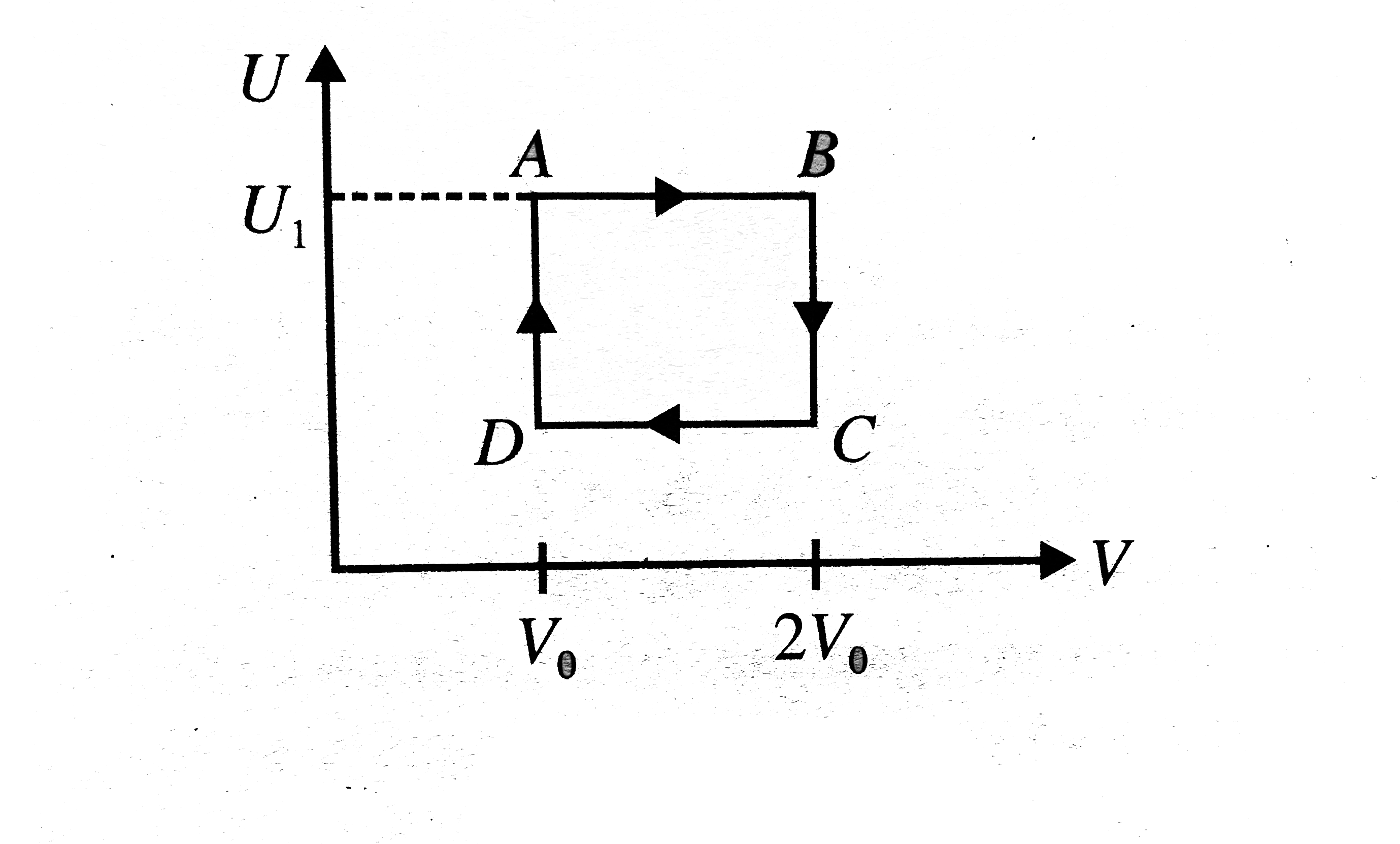
The gas must be
2 R
3 R
52R
4R
The correct Answer is:B
Given relation for internal energy is
U=U0+2PV.
For this cyclic process change in internal energy is given by
ΔU=2Δ(PV)=2RΔT
⇒CV=2R
⇒Cp=CV+R=3R
Topper's Solved these Questions
Similar Questions
Knowledge Check
- Question 1 - Select One
One mole of an ideal gas has an interal energy given by U=U0+2PV , where P is the pressure and V the volume of the gas. U0 is a constant. This gas undergoes the quasi− static cyclic process ABCD as shown in the U−V diagram.
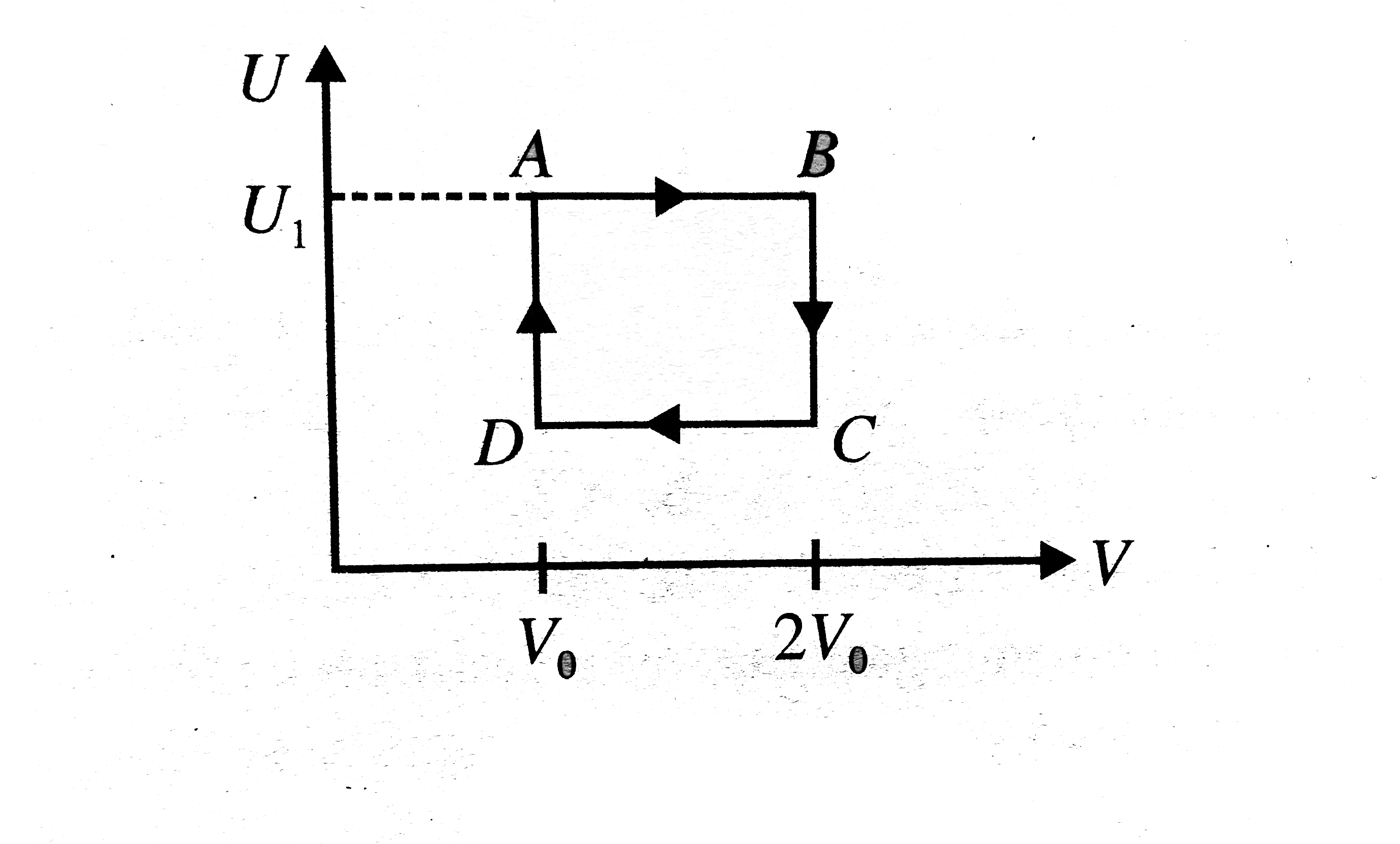
The work done by the ideal gas in the process AB isAzeroBU1−U02CU0−U12DU0−U12loge2 - Question 2 - Select One
One mole of an ideal gas has an interal energy given by U=U0+2PV , where P is the pressure and V the volume of the gas. U0 is a constant. This gas undergoes the quasi− static cyclic process ABCD as shown in the U−V diagram.
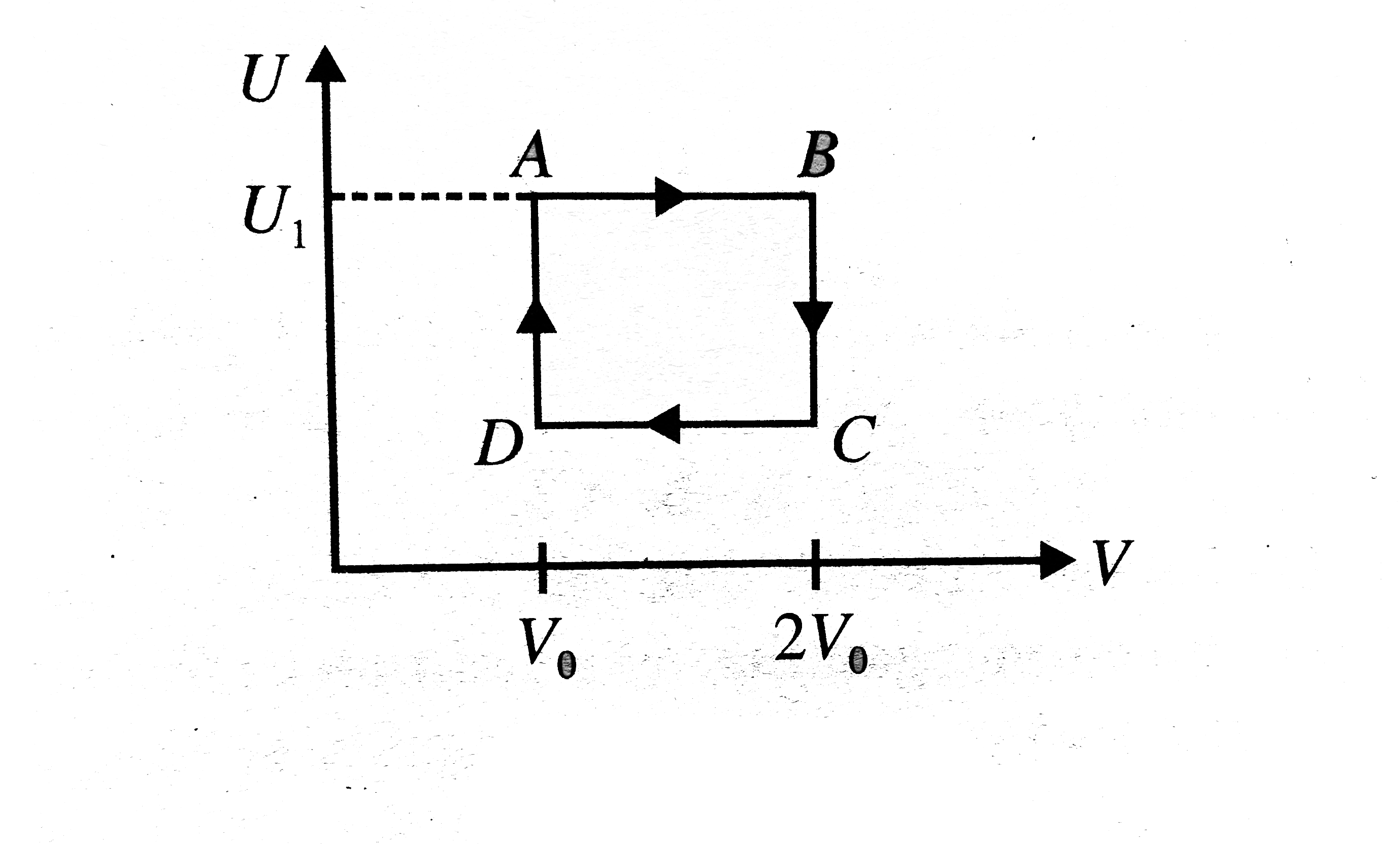 The molar heat capacity of the gas at constant pressure is A2RB3RC52RD4R
The molar heat capacity of the gas at constant pressure is A2RB3RC52RD4R - Question 3 - Select One
An ideal gas undergoes cyclic process ABCDA as shown in givend p−V diagram. The amount of work done by the gas is
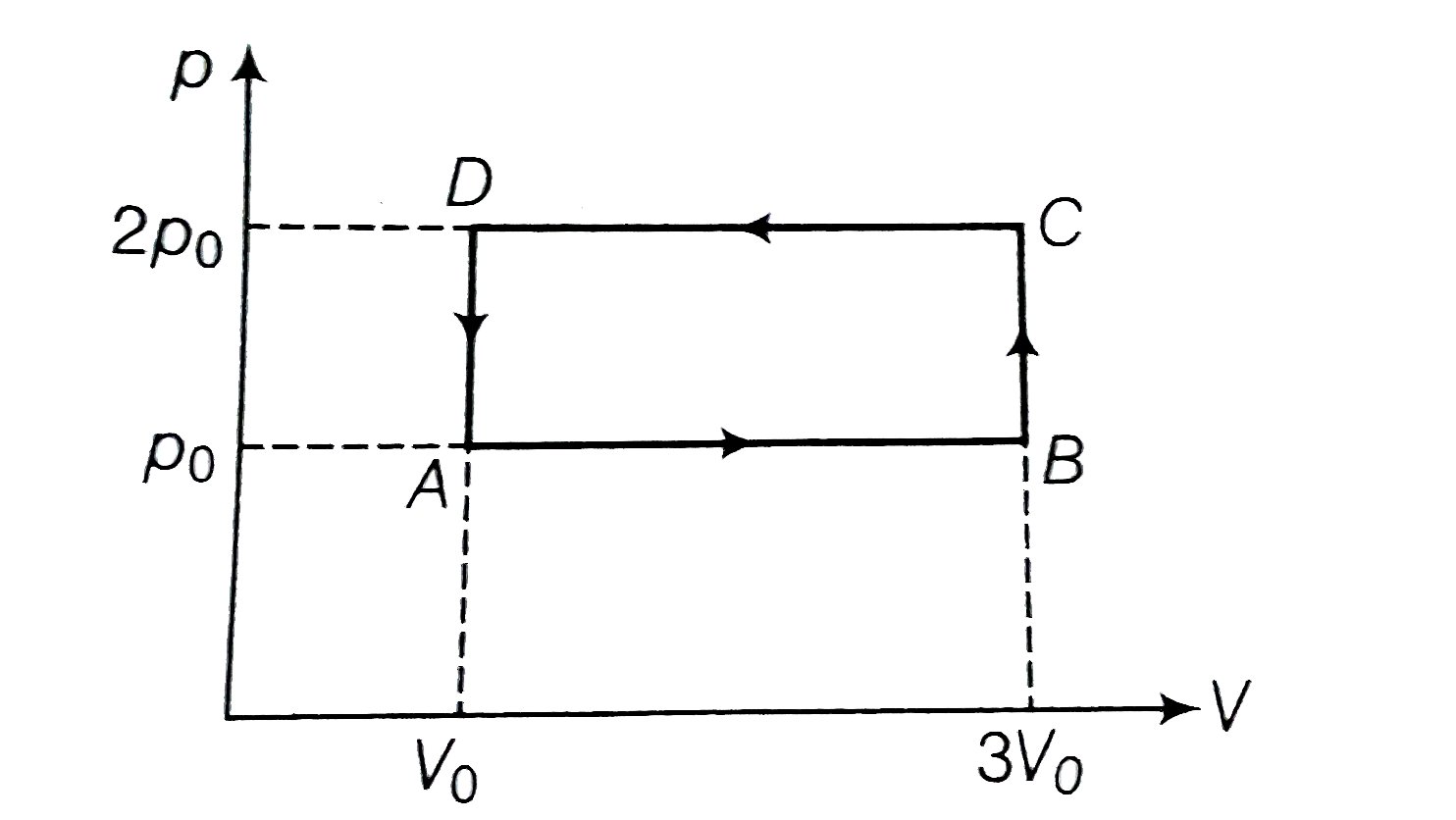 A6p0V0B−2p0V0C+2p0V0D+4p0V0
A6p0V0B−2p0V0C+2p0V0D+4p0V0
Two moles of an ideal monoatomic gas undergoes a cyclic process ABCA as shown in V-T diagram below:

Heat supplied to the gas during the process AB is :View SolutionFor an ideal gas the internal energy is given by U=5PV/2+C, where C is a constant. The equation of the adiabatic in the PV plane will be
View SolutionTwo moles of an ideal monoatomic gas undergoes a cyclic process ABCA as shown in V-T diagram below:

Work done by the gas during the entire cycle is :View SolutionOne mole of an ideal gas is taken through a cyclic process as shown in the V-T diagram. Which of the following statements is true ?
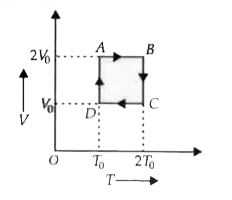 View Solution
View SolutionOne mole of a van der Waals PA gas obeying the equation P (P+aV2)(V−b)=RT
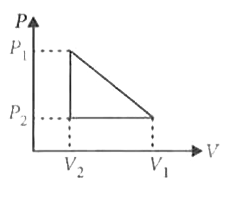
undergoes the quasi-static cyclic process which is shown in the P-V diagram. The net heat absorbed by the gas in this process isView Solution

